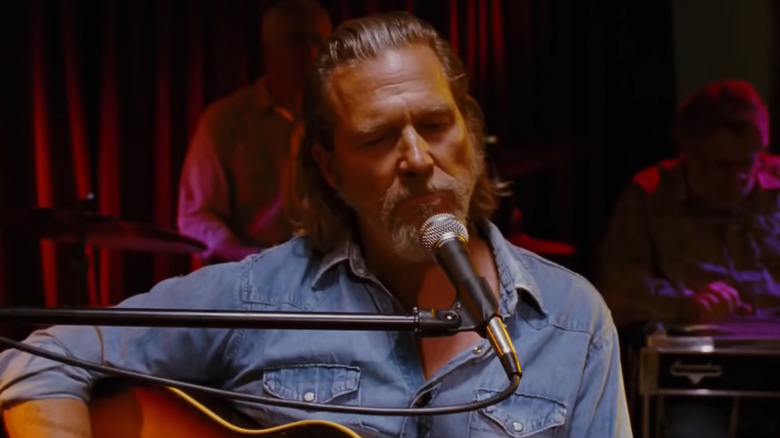
I believe Jeff Bridges is one of the most charming actors of the last 50 years, and I'm not alone. Pauline Kael went one step further by calling Jeff, in an oft-quoted line, "[maybe] the most natural and least self-conscious screen actor who ever lived." I don't know if Kael harbored any sort of attraction toward Bridges, but I can't claim that my appreciation of him is entirely platonic.
He's not only a fine figure of a leading man (with an even finer head of hair), but he also possesses an easy charisma that has bolstered his screen presence from "The Last Picture Show" in 1971 all the way to "The Old Man," his recent Hulu show. If Bridges has ever given a bad performance, please enlighten me because I have yet to find it among his many credits. Instead of any further hagiography, here is a breakdown of Jeff Bridges' best movies.
The Big Lebowski
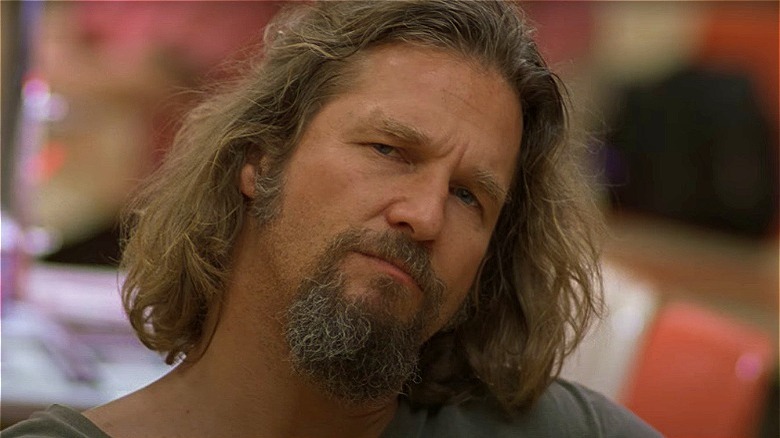
I have never joined "The Big Lebowski" cult. I wish I could, but the ransom plot is too weak, especially compared to "Fargo," the Coen brothers' previous film, and the thick quirk spreads thin long before the two-hour running time ends. It's better than the vapid chaos of "Raising Arizona," but "The Big Lebowski'' just doesn't come together for me. Don't take that as some sort of hatchet job, though. There's a reason "The Big Lebowski" is one of the biggest cult hits of the 1990s, and it is Bridges' turn as Jeffrey "The Dude" Lebowski.
It didn't win him any awards, but "The Dude" is unquestionably the actor's most celebrated role. Lebowski's perpetual slackerdom fits Bridges' easy demeanor, and his character's idleness is emphasized in contrast to his friend Walter Sobchak (John Goodman), a gun-toting Vietnam veteran based in large part on brawny filmmaker John Milius.
Only The Brave
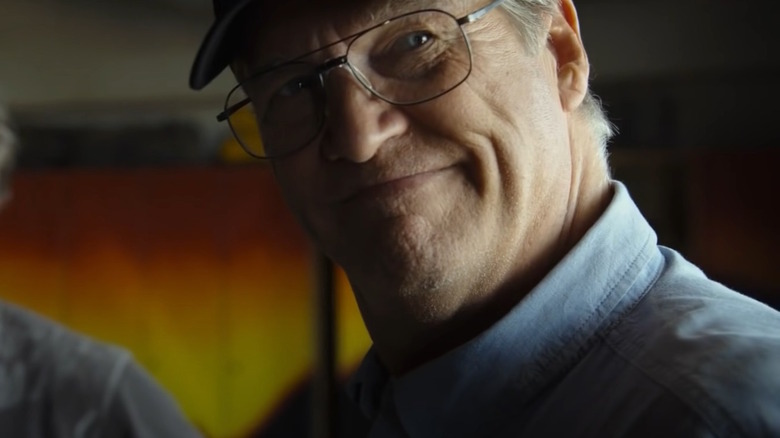
There was a time when firefighters had little more than "Backdraft" to represent them on the big screen. It was an improvement on "Hellfighters," the John Wayne vehicle from 1968, but "Backdraft's" hammy melodrama undermined its all-star cast and exciting spectacle.
"Only the Brave" changed this. Instead of a soap opera built around fiery set pieces, Joseph Kosinski's film tells the story of the Granite Mountain Hotshots, an Arizona fire crew that lost 19 of its 20 members in the Yarnell Hill Fire on June 28, 2013. It was an achingly sad occasion for the community of Prescott, Arizona, but this isn't all "Only the Brave" is about; The film is an involving drama about family, friendship, purpose, and politics.
Until that terrible June day (and before a subplot about the pressures of service and family), "Only the Brave" is driven by Eric Marsh's (Josh Brolin) struggle to promote his crew from "Type 2" to "Hotshot" status, which is the difference between tackling the aftermath and fighting the fire head-on.
Brolin depicts Marsh as utterly qualified for the job but too forthright to appease the chain of command. Fortunately, Marsh has a friend in Fire Chief Duane Steinbrink, whom Bridges plays with fatherly, dependable wisdom. It's a supporting turn but also an important one, and it's another example of Bridges' late-career affinity for easy-going, blue-collar characters.
Heaven's Gate
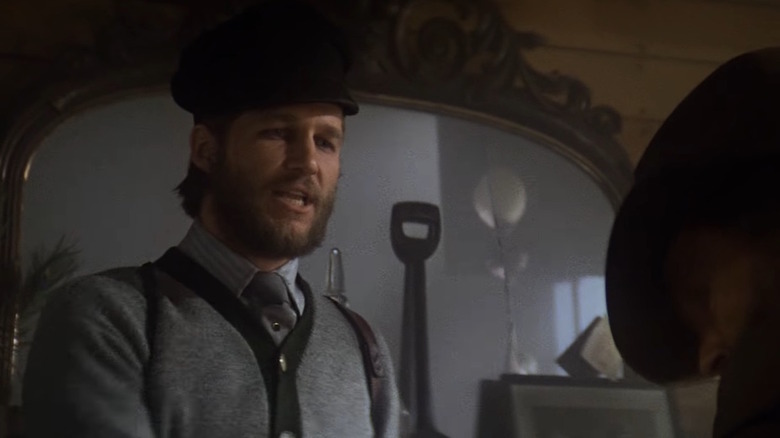
"Heaven's Gate" did more than any other film to end the New Hollywood period of the late 1960s to the early 1980s, which saw studios cede creative power to directors, resulting in perhaps the most fertile era in all of American filmmaking. Michael Cimino became a late poster boy of New Hollywood when "The Deer Hunter," a three-hour movie firmly in the auteur tradition, took home five Oscars in 1979, including best picture and best director. This took an already headstrong filmmaker and turned him into a 50-take tyrant, leading inexorably to "Heaven's Gate," a 220-minute picture that was annihilated by critics and lost United Artists some $40 million at the box office (via Box Office Mojo).
What is this unholy mess about? Most talk only about the production rather than the film itself. It's a fictionalized account of the 1890 Johnson County war, and Jeff Bridges takes a supporting turn to Kris Kristofferson and Christopher Walken, who lead as rival figures in the conflict pitting provincial landowners against big ranchers. Bridges may be ancillary as John L. Bridges, but the Wyoming entrepreneur is responsible for designing a roller skate rink called Heaven's Gate, which gives the film its name.
American Heart
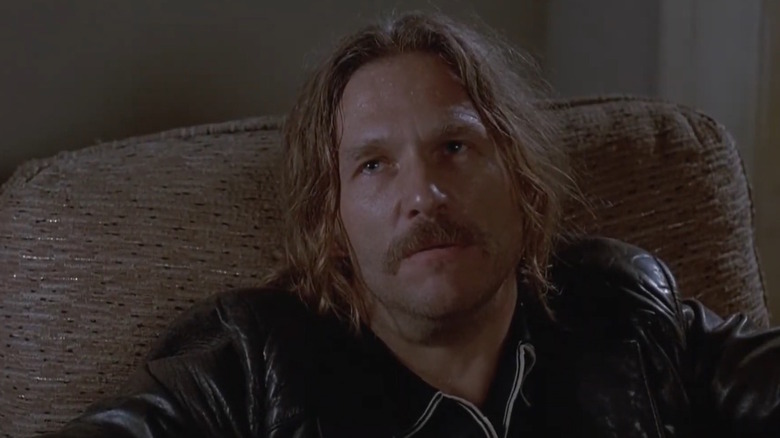
With just 3.5k votes on IMDb, "American Heart" seems all but forgotten, and that's despite Jeff Bridges appearing topless on the front cover, flaunting abs and obliques back in 1992 as if he's Marky Mark. This isn't some kind of music video, though. Quite the opposite. "American Heart" is a grim realist drama about life on the edge and the numerous characters who inhabit it.
Bridges stars as Jack Kelson, a convict fresh out of jail. He's also father to Nick, a young teenager played by Edward Furlong, who walked off the set of "Terminator 2: Judgment Day" to be part of this very different movie. Nick is novel among children of negligent fathers in that he doesn't hate his dad's guts, which is a refreshing contrast to "The Wrestler," "The Whale," and numerous other examples. Instead, Nick is curious and empathetic about the new figure in his life, albeit appropriately wary.
Director Martin Bell relieves his film of sentimentality because he is a documentarian by trade. "American Heart" is essentially a fictionalization of his 1984 documentary "Streetwise," which follows nine runaway teens navigating the streets of downtown Seattle.
Jagged Edge
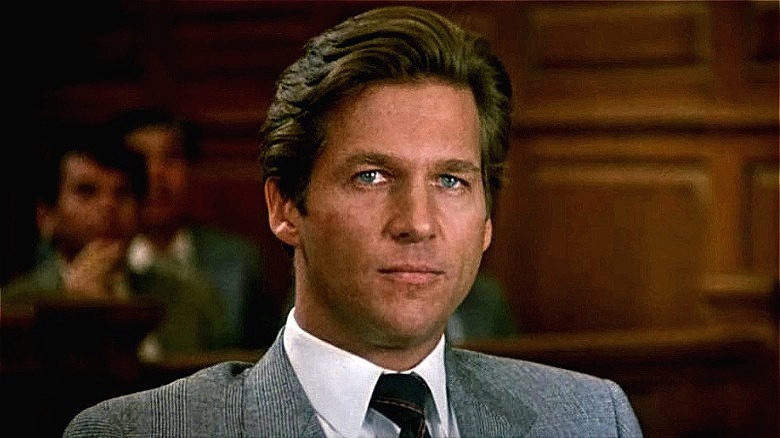
In "Jagged Edge," Bridges is Jack Forrester, the husband of a wealthy socialite, who is brutally murdered in their California beach house. Suspicion falls on Jack and for good reason. He's the sole beneficiary of his wife's estate, but a web of circumstances shrouds the case in mystery, namely a lustful affair between Jack and his lawyer, Teddy (Glenn Close).
Their romance makes a persuasive case for Jack's innocence. He is charming, chivalrous, and tormented by his wife's murder, which he strenuously denies. However, if a man could kill his wife with such premeditation, he could likely lie about it, too. However, Joe Eszterhaus's script disarms you of any certainties, as does Bridges' preppy charisma, which subverts the actor's typical mien with unnerving effect.
Time has undone some of the tension, especially the music, a plodding mix of synth and ghoulish piano keys that sound like something from a '50s B-movie. Still, "Jagged Edge" keeps you guessing until the very end.
Thunderbolt And Lightfoot
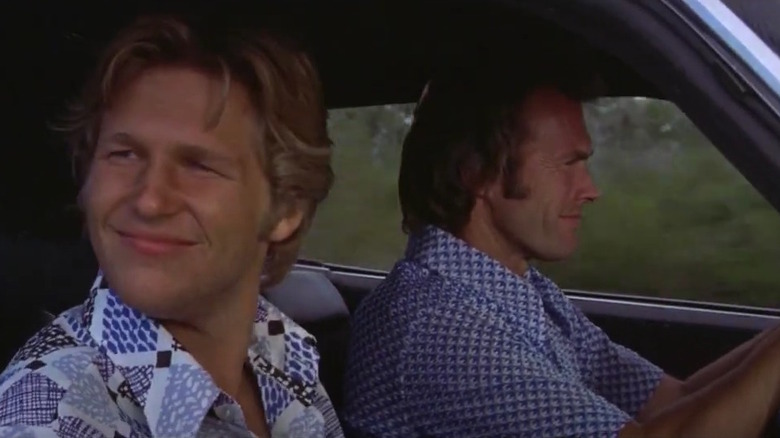
"Thunderbolt and Lightfoot" is a sidelined entry in the filmographies of Jeff Bridges, Clint Eastwood, and its director, the aforementioned Michael Cimino. The film is a colorful crime road movie that pairs two very different actors. I can't comment on personal differences, but as far as screen personas are concerned, there is a gulf between Eastwood, the proverbial strong, silent type, and Bridges, the amiable good guy (even when he's a rogue). As you may expect, this contrast manifests as a classic "buddy" dynamic.
The premise hits familiar beats, too (ex-cons, sex workers, heist plots), but they unravel alongside numerous quirky scenarios involving drag racers, white rabbits, cross-dressing, anti-aircraft guns, and the insult, "Go f**k a duck," delivered to a kid, no less. Then there's the ending, which is unthinkable today but very much a part of 1970s cinema with its narrative risk-taking. However audiences took it, Bridges played it beautifully.
The Fisher King
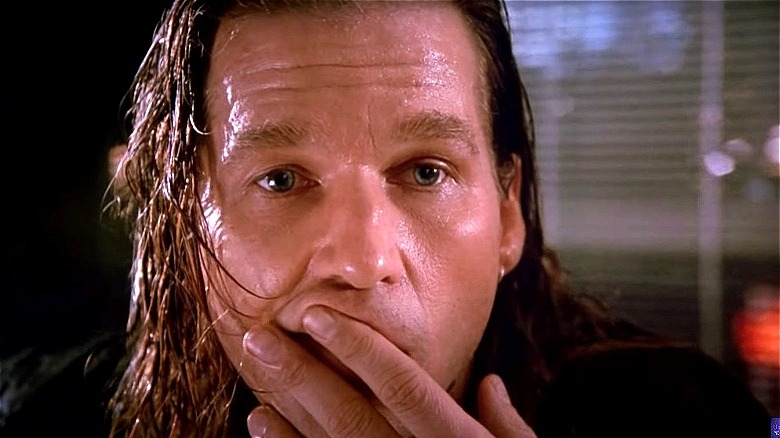
Contrary opinions can sour moods in the most wayward fashion. The Marvel Industrial Complex is a good target for stirring hormonal angst, but if you want to offend the broadest possible demographic, then criticize Robin Williams — not the man but his frenetic, saccharine style of comedy that gave him "national treasure" status. Thankfully, "The Fisher King" manages to dilute most of Williams's excesses, and it does so with a weird stir-fry of humor, fantasy, romance, and disturbing tragedy.
It begins with Jack Lucas (Bridges) talking trash on his radio show, à la Howard Stern. He mocks numerous callers, including a vulnerable man named Edwin, who thinks he struck it lucky with a beautiful woman in a chic bar. Lucas shoots his story down and rails against the woman and the yuppies supposedly like her, attacking them in a ranting, polemical style. He gets a few good soundbites in there. So good, in fact, that Jack inspires Edwin to return to the bar and open fire, killing seven people. This destroys Jack's world, and three years later, he lives above a video store with his fiery but doting girlfriend, Anne (Mercedes Ruehl).
Dejected and cynical, Jack finds new purpose when he meets Parry, an eccentric homeless man whom Williams plays as a male equivalent to the bird lady in "Home Alone 2." It's improbable and manipulative, but screenwriter Richard LaGravenese manages to ground his livewire story with frank, honest dialogue about human interpersonality. The performances are great, too, especially from Ruehl, who goes from brash to tender with scene-stealing nuance.
Tucker: The Man And His Dream
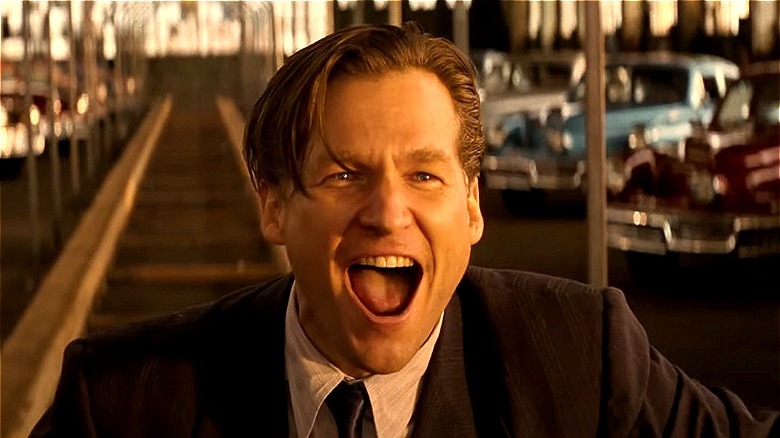
Here is a film not about a Fox News host but about Preston Tucker, an automotive entrepreneur whose great project, the Tucker 48 sedan, was mired in a corporatist stitch-up by the Big Three motoring companies and the U.S. Securities and Exchange Commission. This has all the trappings of an indignant courtroom drama, but "Tucker: The Man and his Dream" is instead a glowing nostalgia piece that presents its subject as an embodiment of American grit, ambition, and ingenuity.
Bridges is just the actor to embody this misty-eyed vision. Kissed by the film's warm lighting, he brims with positivity and a can-do attitude that convinces you that anything is possible, from a spontaneous dinner for 10 to industry-changing automotive design. The title suggests that this will be about Tucker's character, but this is a glossy interpretation, not a probing study, and it is all the more fun for it.
Bad Company
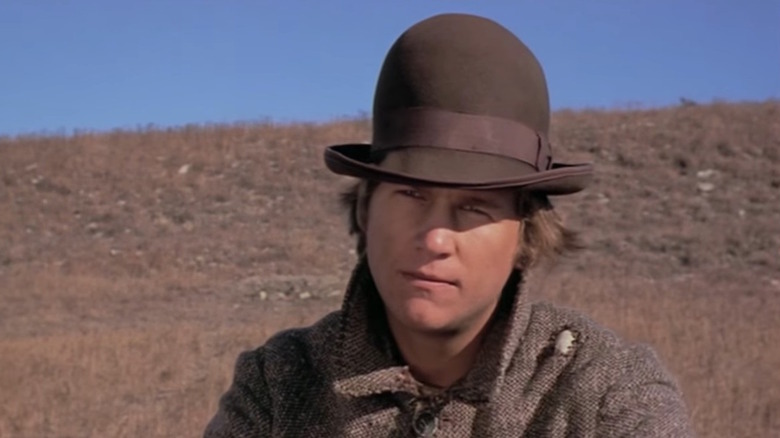
"Bad Company" is a Western about how outlaws were made beyond the frontier, a place where violence begot violence in once-ordinary people. Drew Dixon (Barry Brown) is a microcosm of this moral corrosion. He's a young Christian man who heads west to avoid the draft, which is conscripting thousands of men into the Civil War meat grinder.
Dixon plans to settle in Virginia City, Nevada, but is derailed long before that in St. Joseph, Missouri, where he runs into Jake Rumsey (Bridges), the titular bad company. Rumsey has a good eye for outsiders, especially the weak ones, so he pounces on Dixon with breezy talk of dodging the authorities before knocking him unconscious in an alley and rummaging through his pockets. You'd expect that to be the beginning and end of their brief relationship, but after a messy brawl in a minister's house, Rumsey convinces Dixon to join him out west where the army can't catch him.
We see life on the frontier for what it was — a nomadic struggle in which force was currency. Any lapse in vigilance could see you lose everything to a sharper, meaner adversary who had probably himself lost everything to some other jaded crook. We see this cycle befall Dixon and Rumsey, and it is presented not as gunslinging genre filming but as social history.
Roger Ebert wrote that the film's ending "just plain stopped" and left him "suspended in midair" without a conclusion. There's no doubting the scene's abruptness, but it is not anti-climactic, as Ebert suggested. It is an appropriate end to the film's noirish moral descent.
Crazy Heart
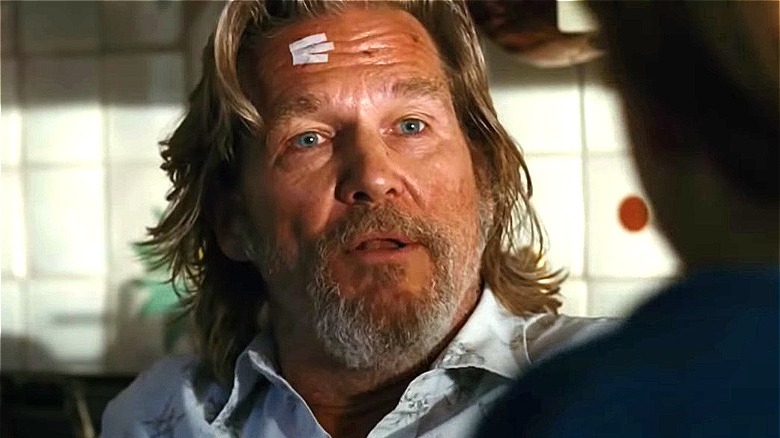
"Crazy Heart" is a fine example of execution over originality. You know what country singer Otis "Bad" Blake is all about —booze, women, and self-destruction — but there is no diluting the lived-in mastery of Bridges' performance.
We meet Bad on the road, where it seems he lives rather than just works. His routine consists of day drinking at motels, followed by more drinking at whatever establishment he's playing — bars, mostly, but also bowling alleys, where his first gig of the film takes place. This is ignominy for Bad, a once-hot country star, so he drinks so much that he must leave the stage to vomit, which is an excruciating spectacle in a film with such a realist, fly-on-the-wall aesthetic. This life is downstream from a lot of bad decisions, but it's not too late for the old musician. He meets Jean (Maggie Gyllenhaal), a journalist and divorced single mother of a 4-year-old boy. Bad's not short of groupies, even in his condition, but Jean is more than that. She treats him as a person, not a novelty, and the feeling is keenly reciprocated, even if the four-wife record casts doubt over Bad's loyalty.
"Crazy Heart" may sound like a honky-tonk "Leaving Las Vegas," but it's actually a fairly soft and easy film. Indeed, Bad carries his alcoholism a bit too well; A chronic drinker nudging 60 would be redder in the face and wider in the gut, I suspect.
Hell Or High Water
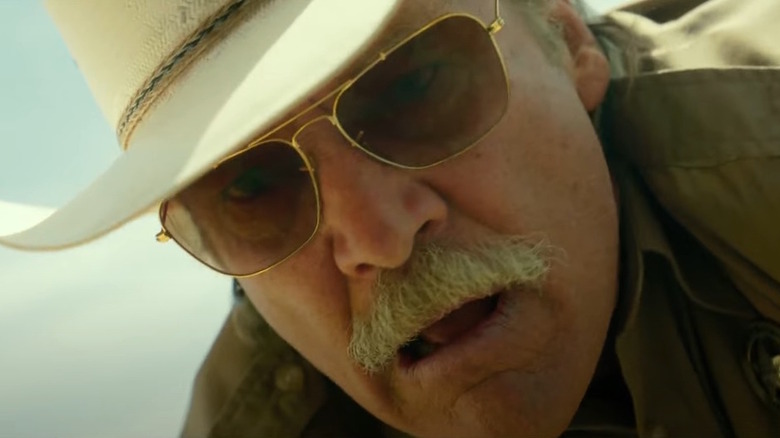
Here is one of the finest films of the 2010s. To call it a "buddy cop" film would be cheapening, although it does function on that level better than most. Marcus Hamilton (Bridges) and Alberto Parker (Gil Birmingham) are aging Texas Rangers assigned to a series of bank robberies in the state's rugged western region. The officers have known such danger for years, and it has instilled in them not fear but an ability to keep cool and shoot the breeze.
Much of the rangers' chemistry is grounded in their differences, especially Parker's Native American heritage, which Hamilton targets with frequent off-color jokes. Such humor may be crass, but this is how these characters speak to each other, and they share too much heart and respect for there to be any offense.
The men are united as partners and as lawmen against criminals and the changing face of their West Texas domain, which Parker feels is at the mercy of a new colonizer — the banks. Such musings aren't so timeless as Sheriff Bell's wistful monologues in "No Country for Old Men," but they feed the frayed soul of this superlative drama. Meanwhile, a very different relationship is explored between bank-robbing brothers Toby and Tanner Howard (Chris Pine and Ben Foster). The threads of these characters are straightforward. Toby is measured; Tanner is violent. But "Hell or High Water" refuses to fall back on cliches. It is a most brilliant neo-Western with a bleak, cynical worldview befitting the moodiest noirs.
The Last Picture Show
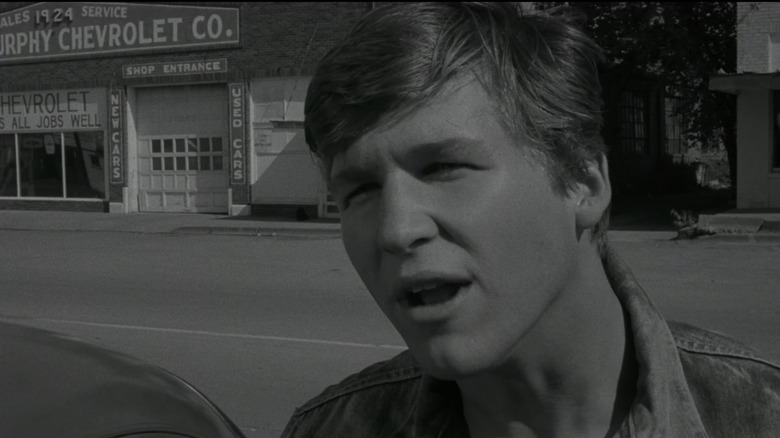
There is perhaps no better film about 1950s small-town America than "The Last Picture Show," Peter Bogdanovich's landmark contribution to the New Hollywood period. Evocative black-and-white photography marks the film with ennui that looms but never saturates, owing to a sexual energy that livens the wistful, elegiac tone, albeit within the confines of Anarene, Texas, which is a few generations away from being a ghost town.
Bridges plays Duane Jackson, a high school senior anticipating the future with his friends Sonny (Timothy Bottoms) and Jacy (Cybill Shepherd). Bridges shows the same effortless naturalism he'd bring throughout the rest of his long career, lending credence to Roger Ebert's 2009 comment, "Some actors are blessed. Jeff Bridges is one of them."
However, the strongest performances are found elsewhere in the cast, especially from Ben Johnson, the actor, stuntman, and rodeo cowboy who knew the West better than any actor in the business. His lakeside monologue about life, love, and loss is so compellingly natural that Johnson won the Oscar for best actor in a supporting role — with no more than 10 minutes of screen time.
Read this next: Ranking Morgan Freeman's 20 Best Roles
The post The 12 Best Jeff Bridges Films, Ranked appeared first on /Film.
/Film https://ift.tt/Qe1F9HZ May 27, 2023 at 02:15PM
Комментарии
Отправить комментарий